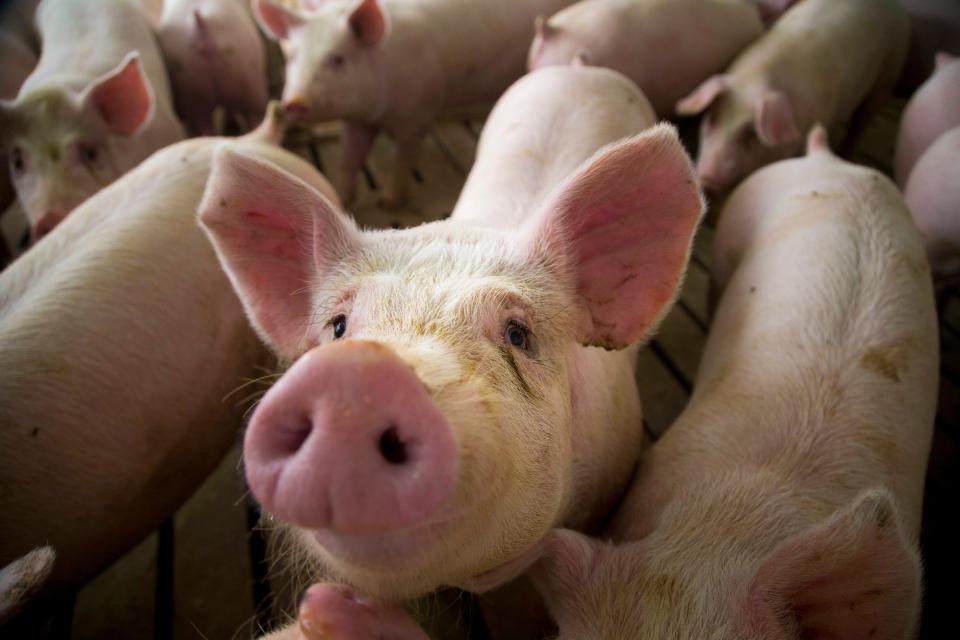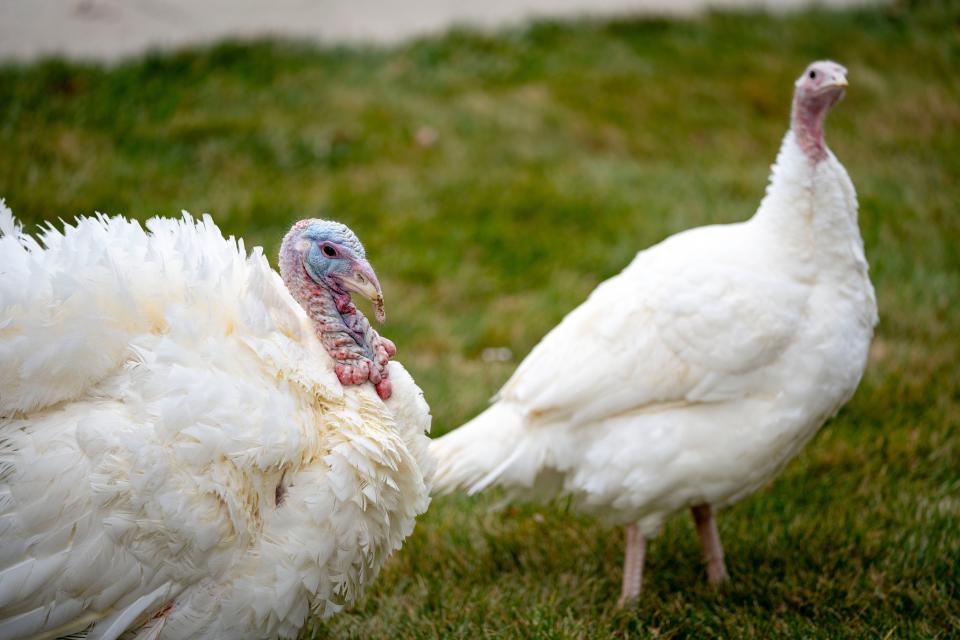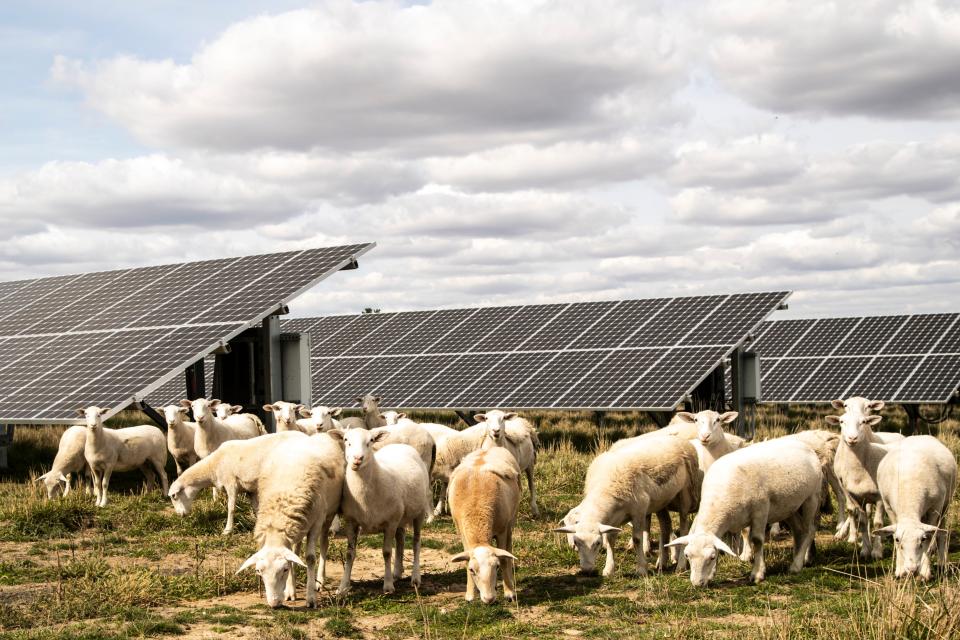Pigs outnumber humans in Iowa. But just how many more livestock reside here than people?
Just curious: This occasional feature in the Des Moines Register aims to answer your questions about Iowa. Is there some place, event, lore, history or cultural quirk you're just curious about? Email your question to the Des Moines Register's Bill Steiden at wsteiden@registermedia.com.
Ever wonder just how many pigs, chickens, turkeys, cattle, lambs and goats live in Iowa?
The answer is many more than there are people in the state. And that’s just the pigs.

Iowa, with about 3.2 million residents, is home to nearly 124 million farm animals, although livestock numbers fluctuate depending on factors like the costs to raise them and market demand.
Iowa attracts a lot of livestock production because the state's farmers grow the most corn and second-most soybeans nationally, providing plenty of feed for them. The manure from the animals is used, in turn, to fertilizer the crops.
Here’s how Iowa’s livestock population breaks down, according to U.S. Department of Agriculture data:

Chickens: Nearly 55 million in 2023, which includes 44.4 million laying hens that produced 13.3 billion eggs in 2023, the most produced by any state.
Pigs: 53.4 million in 2023.
Turkeys: 11.5 million in 2023.
Cattle and cows: 3.7 million; the state’s 238,087 milk cows produced 5.8 billion pounds of milk in 2022.
Sheep and lambs: 162,000 in 2023.
Goats: 86,853 in 2022.
Production of manure, based on Iowa's livestock counts in the 2022 U.S. Census of Agriculture, was 59.6 million tons. It provides about 35% of Iowa agriculture's nitrogen needs, 31% of the phosphorus and 43% of the potassium, according to Daniel Andersen, an Iowa State University associate professor of agricultural and biosystems engineering.
Farmers buy commercial fertilizers for the remainder of their needs.
Much of the livestock in Iowa is raised in CAFOs, or concentrated animal feeding operations, which have become a source of controversy.

Opponents say manure from the facilities contributes to the state’s water quality issues, are inhumane to animals and create smell and insect problems for neighbors. Proponents say manure from the facilities is responsibly applied, following state requirements, and that they provide better care for animals and help make food more affordable for consumers.
Donnelle Eller covers agriculture, the environment and energy for the Register. Reach her at deller@registermedia.com or 515-284-8457.
This article originally appeared on Des Moines Register: Iowa farmers raise how many pigs, chickens, cattle, goats in a year?

